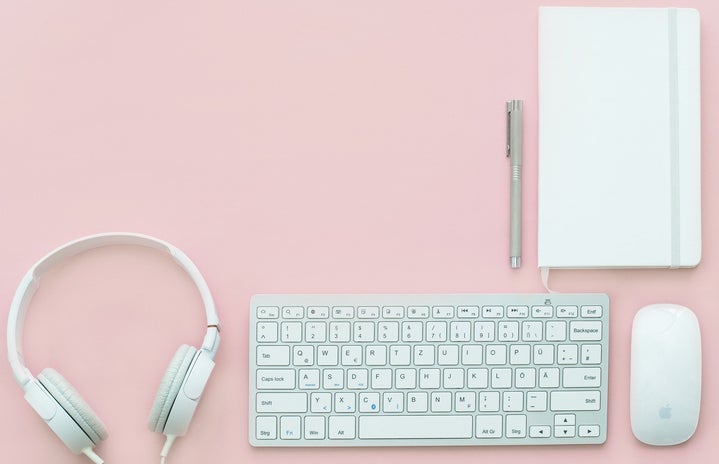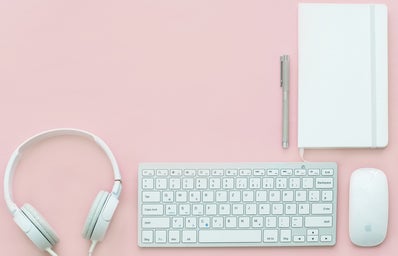This is a piece I published for my Digital Culture and Social Media course this semester. Although it was for a class it has some very relevant tips for navigating the world around us as it becomes increasingly digitized:
“Disconnecting by Connecting? How to Establish Healthy Barriers Between Yourself and Your Technology”
Our world is becoming increasingly reliant on technology, for better or worse. As with any new development, this brings its own unique benefits and downfalls. Although we are connected at all times, we also find ourselves more divided than ever before by the new barriers technology presents.
In order to protect both our mental and physical health while using technology and social media, it is vital to find the best practices that ensure our own well-being; especially while technology continues to become an even larger presence in our lives. It is a new reality, one that is constantly updating, and we have to establish healthy boundaries before we lose ourselves to the possible negative consequences that come with this.
Battling Distraction
One of the main problems that we face in a world controlled by technology is the constant threat of distraction. With the world at your fingertips, it is easy to let your mind wander. Tasks get forgotten or pushed aside and real-life experiences go ignored. We let what is important slip through the cracks with every tab we open, every app we turn to as a distraction, or a quick break we take to scroll through our social media feed.
I personally have found that my procrastination has gotten significantly worse with the new upgraded social media we now have. I allow myself a fifteen-minute break from a paper to go on my phone and before I know it an hour has passed, and no progress has been made. This article by Behavioral Scientist offers some quick solutions to the distraction that we are faced with, especially in tandem with metacognition, accessibility, boredom, and anxiety.
From my personal experience, my phone has always been the biggest distraction when I’m trying to get work done. I have found that utilizing the ‘do not disturb’ feature and setting my phone face down beside me or out of sight completely has helped me be the most productive. Effectively cutting myself off from the digital world forces me to focus on the task at hand. Without do not disturb, I’m sure I would get sucked right back into my phone at the first vibration signaling a text or new notification from social media.
Reconnecting to the World Around Us
The constant presence of a phone in our hands acts as a barrier between us and the world around us. While we can’t all be like Henry Thoreau and completely disconnect from everything around us to turn to a life in nature, there are certainly some steps we can take to better reconnect with the real world.
One practice that I have begun incorporating into my weekly routine is picking a day in which I leave my phone in my dorm before heading out. This allows me to enjoy the company of the people I am with without the constant pull on my attention, as well as appreciate nature and the setting we are in. This is certainly not feasible for everyone – I know there are vital apps on our phones such as the GPS or Uber which may be a necessity when traveling out in the world. If an entire day is too much, start small and pick one outing in which you disconnect from the world online. It could be as simple as a run to the grocery store or a walk around the block. Enjoying some time unplugged with the people I love and getting to appreciate the world around us can be extremely therapeutic. If you need any more convincing to leave your phone at home, check out this article which lays out some more reasons why you should give it a try.
One study shows that it may even be possible to rebuild our connection with nature through the use of our phones! This study found a positive correlation between social media usage and our connection to nature, specifically when the social media use pertained to nature. For example, sharing photos of nature online. As of now, our phones are viewed as a barricade between ourselves and the world around us. But we could instead use them as a means of appreciating nature rather than distracting us from it. Changing the way we think about these devices and altering our uses of them could be extremely fruitful in reconnecting with nature and the world around us!
More Helpful Tips
Another frightening observation about technology is the impact it has on the way we communicate. While it certainly opens up many new avenues of communication, it can also inhibit the way we communicate in real life. In her book, “Reclaiming Conversation: The Power of Talk in a Digital Age,” Sherry Turkle discussed how a lack of face-to-face discussion has greatly impacted the capacity to which we experience empathy.
Our phone distracts us from the time in which we would are truly alone with ourselves. We have grown uncomfortable with being bored, lonely, or self-reflective. As Turkle illustrates in her work, when we struggle to pay attention to ourselves then we also struggle to pay attention to each other. This disconnect is the fissure in which a lack of empathy has grown.
If we hope to mend this disconnect, then the answer lies within ourselves. Becoming comfortable with being alone, spending time with ourselves, and re-attuning our sense of self is key in healing this lack of empathy, connectedness, and fulfillment. Some methods for becoming comfortable with one’s self might be self-reflection through journaling, meditation, or taking the time out of the day to practice a hobby that you truly love. Here is a guided 3-Part Focused Attention Meditation Series as the first step on this journey of self-discovery!
One final tip is to increase your social media literacy. The world online is completely fabricated and looks very different from real life. As suggested by Paula Durlofsky in “Logged In and Stressed Out,” increasing this social media literacy will allow you to distinguish misrepresentations and fabrications of reality. Comparison is the root of all evil, even more so when what you are comparing yourself to is unattainable and falsely promoted. Knowing what is real from what is fake is an important barrier to have when practicing healthy habits with technology.
Final Thoughts
I am not nor have I ever been a tech determinist. I do not believe technology is the doom of society nor do I think it is some great evil that has condemned us. While I think views such as these are rather extreme, I can’t deny that there is some credibility to being at least mildly fearful about the repercussions technology can have. But we are not complacent observers, and you may find the remedies to the negative consequences of social media and technology may be easier to practice than you might think!


